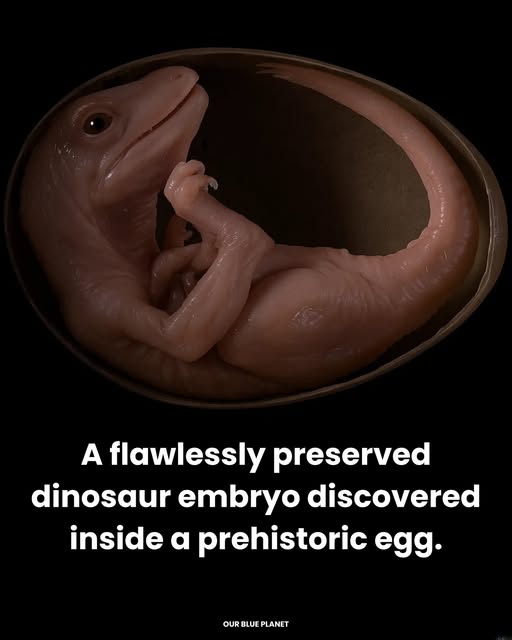A remarkably preserved dinosaur embryo, estimated to be between 66 and 72 million years old, is offering scientists an unprecedented glimpse into the early development of these ancient creatures.
Discovered inside a fossilized egg, the specimen is one of the most complete dinosaur embryos ever unearthed, preserving intricate details such as the positioning of the skeleton and even evidence of pre-hatching behavior.
The embryo belongs to a theropod dinosaur, a group that includes modern birds, further supporting evolutionary links between the two.
What makes this discovery particularly extraordinary is the curled posture of the embryo, resembling that of a late-stage bird embryo just before hatching. This suggests that pre-hatch behavior seen in birds today may have originated with their dinosaur ancestors. The fossil not only enhances our understanding of dinosaur reproduction and development but also provides compelling new insights into how bird-like characteristics evolved over millions of years.


